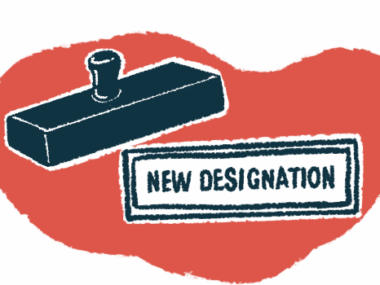Facing My Daughter’s Mortality Has Helped Me Enjoy Her Life
Written by |

This week, an all-too-familiar scene greeted me when I logged onto Facebook: a teenage boy smiling at the camera without a care in the world, and a message above his photo letting me know of another warrior gone too soon.
I can’t tell you how many Dravet warriors have died since my daughter Austen was diagnosed in 2016, but I can tell you that each of them still takes my breath away. The fact is that many of our kids die young. An estimated 10-20% don’t see adulthood, and of that percentage, roughly 73% don’t live to the age of 10.
This was one of the first statistics I learned when we got her diagnosis, and it is the one I pray daily we will beat. It didn’t feel like a real possibility for the longest time, although I’m not sure if it was because I was naive or in denial.
I am human, and like any human, some deaths hit me harder than others. In January 2019, one death hit me especially hard. It was a little girl, only a few years older than Austen. Members of their family were fellow Texans who also had moved to Colorado to pursue medical cannabis as a treatment option. I had talked to the mom and commiserated about leaving home and getting used to real winters.
I watched through the lens of social media as the little girl was hospitalized, then seemed to be doing better on her new treatment. Then one morning, I woke up to see that she was gone.
I remember the sensation of all the air being sucked out of me at once. I looked at Austen and realized for the first time that this really could happen to her. I spent days obsessing over this. I got myself so worked up I had an eczema breakout all down my face and neck. I couldn’t let her out of my sight for even a second, and it was driving all of us to our breaking points.
Finally, I had a massive panic attack one day that ended in phone calls to my therapist, doctor, and priest. My therapist calmed me down, my doctor put me on an antidepressant (best decision ever for me), and my priest worked to heal my soul.
It was a long process, with a lot of tears and prayers, but my priest, therapist, and I came up with a plan. We would focus on all the ways I could make the time I have with Austen the best it could be. I could also go ahead and plan for the end so I do not have to stress about what happens if that day comes.
Right about now, you might be thinking, “What parent plans their child’s funeral when they are still alive?”
I thought the same thing when my priest and therapist brought it up. But I did it, and I can’t tell you how much anxiety it took off my plate.
Maybe it’s knowing we are so far away from home, or maybe it’s knowing that I definitely won’t be in the right state of mind to make those decisions if something ever does happen. I’m not sure, but sitting down and picking out hymns and prayers brought a sense of peace to my soul.
With the end taken care of, I now have space in my mind to focus on the now. I still have a mini-breakdown during each of Austen’s seizures. I still worry if this seizure or the next will be the big one that takes her away. I still check to make sure she’s breathing several times a night because I am terrified of SUDEP, which causes sudden death.
But I can live our day to day now without wanting to wrap her in a giant bubble. I can smile with her and laugh as she jumps, sings, and dances.
I’ve had to reroute my brain and the way I think about Dravet syndrome mortality statistics. Instead of living every day in fear, I have forced myself to be grateful for the knowledge that our time together is possibly limited. Now, I never take a single moment for granted. I cherish every trip to the park and swim at the lake in a different way than I did before, and it makes me a better mom to all three of my kids.
***
Note: Dravet Syndrome News is strictly a news and information website about the disease. It does not provide medical advice, diagnosis, or treatment. This content is not intended to be a substitute for professional medical advice, diagnosis, or treatment. Always seek the advice of your physician or other qualified health provider with any questions you may have regarding a medical condition. Never disregard professional medical advice or delay in seeking it because of something you have read on this website. The opinions expressed in this column are not those of Dravet Syndrome News or its parent company, Bionews, and are intended to spark discussion about issues pertaining to Dravet syndrome.






Sharbari Roy
Same thoughts hounds me dear but hope is always there.